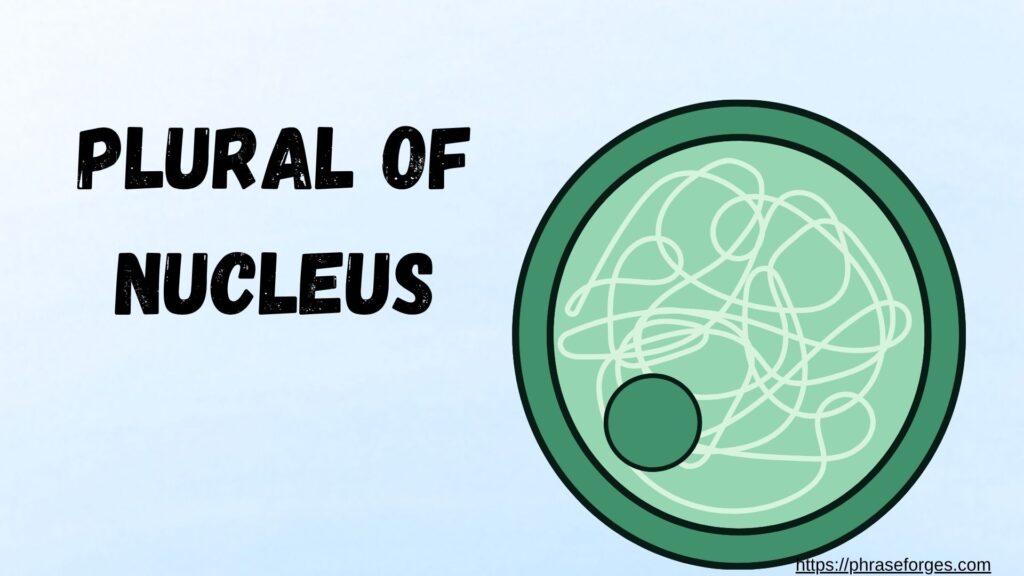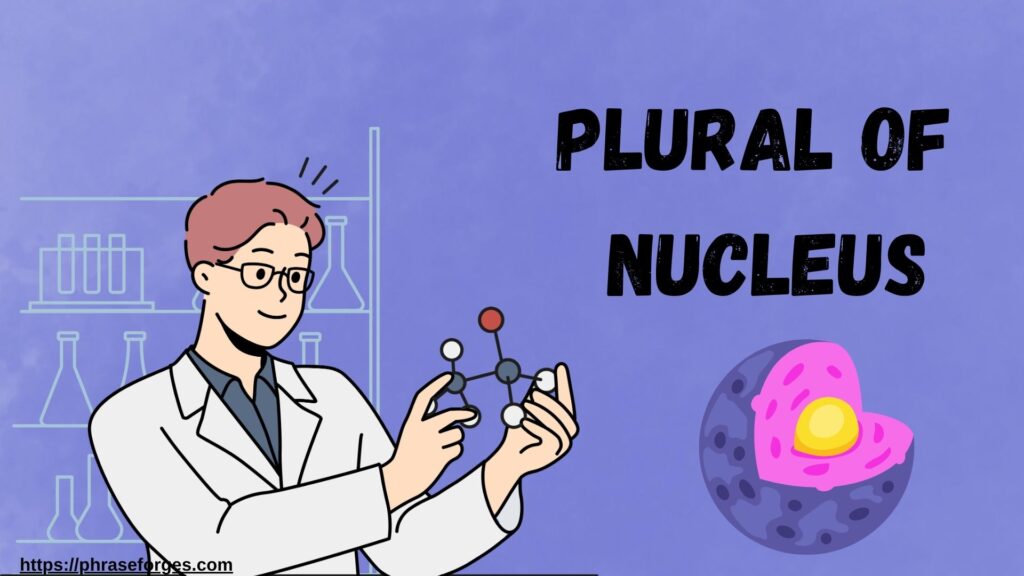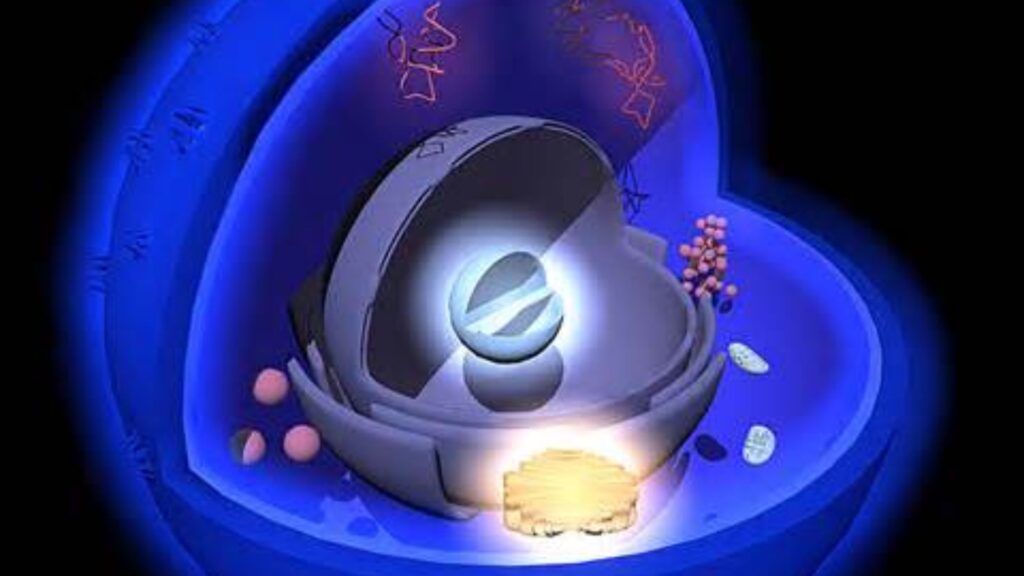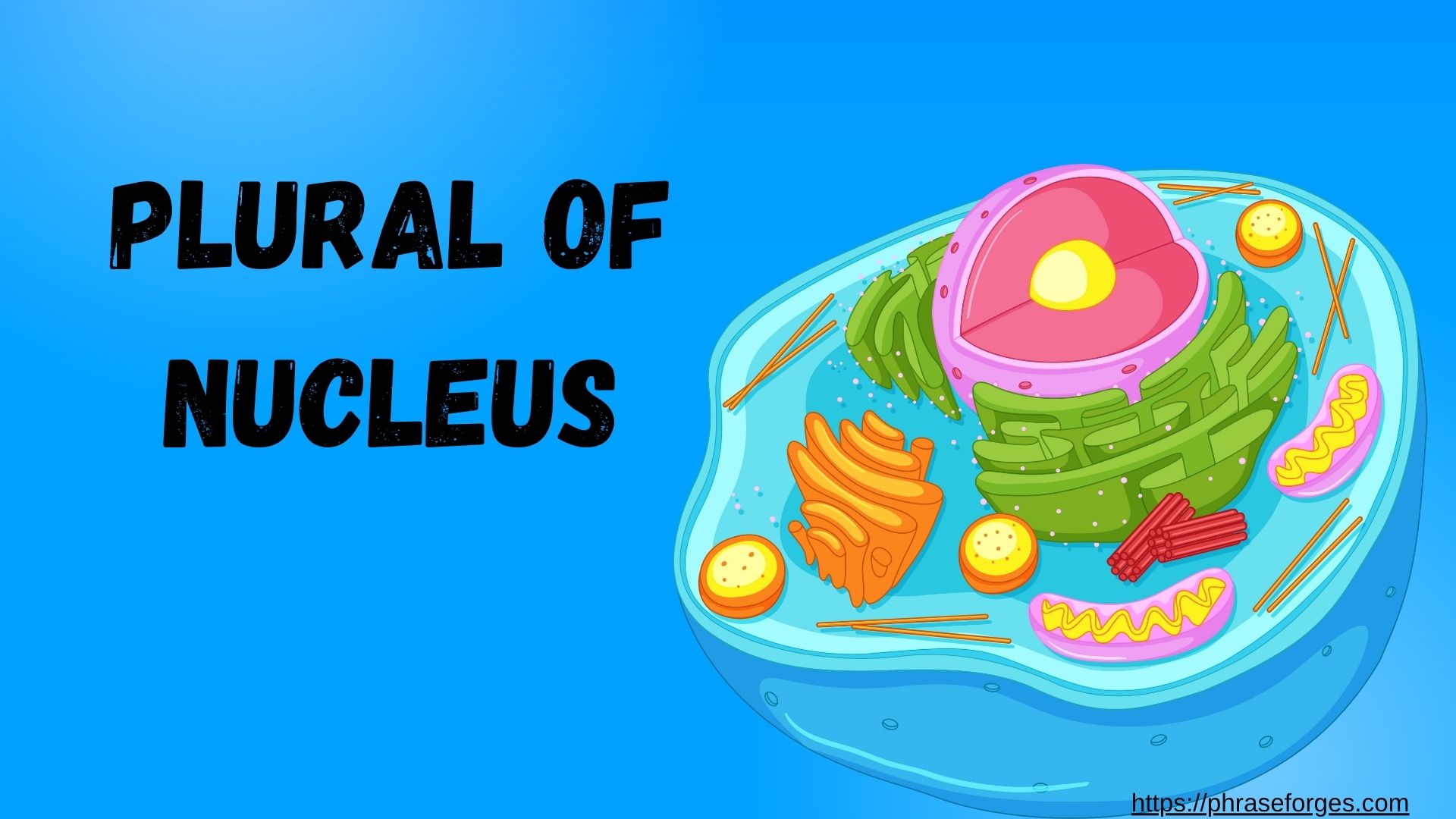Keyword + Intro Explanation

If you’ve ever found yourself typing an email about biology or physics and paused to wonder, “What’s the plural of nucleus?”, you’re not alone. This seemingly simple question trips up even fluent English speakers, especially when scientific jargon enters the chat. The confusion often stems from the word’s Latin origin, and the fact that English, being the melting pot it is, loves to borrow words quirks and all.
So let’s dive into the correct plural form of nucleus, understand why it’s that way, and look at how to use it naturally in both academic and everyday contexts.
Simple Definition + Usage Overview
The word “nucleus” refers to a central or most important part of something. In science, it’s most commonly known as the core of a cell or the central region of an atom. But it can also appear in non-scientific usage, referring to the central group or focus of an idea, movement, or organization.
So, what’s the plural of nucleus? The answer is:
Nuclei the correct and most widely accepted plural form.
Why? Because “nucleus” comes from Latin, and like many Latin-derived words in English, it retains its original pluralization pattern.
Clear Rules & Patterns

To make things crystal clear, here are the rules that govern the plural form of “nucleus”:
📚 General Rule for Latin Nouns Ending in -us:
If a noun ends in -us and is Latin-derived, it often changes to -i in the plural.
Examples:
- Cactus → Cacti
- Focus → Foci
- Radius → Radii
- Nucleus → Nuclei
⚠️ But not all “-us” words follow this rule. Words like “bonus” or “bus” take regular plurals: bonuses, buses. That’s why context matters.
🔍 When Is “Nuclei” Used?
Primarily in:
- Biology (e.g., cell nuclei)
- Physics (e.g., atomic nuclei)
- Astronomy (e.g., galactic nuclei)
- Sociology or organizations (e.g., core members of a group—metaphorical usage)
Bulleted Rules With Do’s and Don’ts
Here’s a quick breakdown of do’s and don’ts to remember when using this word:
✅ Do:
- Use nuclei when referring to more than one nucleus in a scientific context.
- Treat nuclei as a plural noun (i.e., use plural verbs: “Nuclei are…”).
- Stay consistent in formal writing, especially in academic or research-based text.
❌ Don’t:
- Use “nucleuses” in professional or scientific writing it’s grammatically allowed but rarely accepted.
- Confuse “nuclei” with similar-looking terms like “nucleoids” or “nucleons” those are different concepts.
- Add an “s” to nuclei (e.g., nucleis incorrect).
Multiple Example Sentences
Let’s break down some real-world sentences that show the difference between singular and plural usage.
| Singular Usage | Plural Usage |
|---|---|
| The nucleus of the atom contains protons and neutrons. | The nuclei of these atoms are unstable and emit radiation. |
| A cell’s nucleus controls its activities. | In this tissue sample, the nuclei are stained blue. |
| The nucleus of the movement began with a few passionate individuals. | The nuclei of similar grassroots efforts can be found across the country. |
Scenario Example 1: Academic Email
Subject: Clarification on Cell Diagram Annotations
Hi Dr. Patel,
I was reviewing the cell diagram from last Friday’s lecture, and I noticed that some of the nuclei in the epithelial tissue slide appeared unusually large. Would this be an indicator of increased cell activity or a sign of mutation?
Looking forward to your insights.
Best,
Jenna Martin
✅ In this case, “nuclei” is correctly used to refer to multiple cell nuclei.
Scenario Example 2: Informal Communication
Text Message between Friends:
Alex: Hey, did you get what she said in the last part about atomic nuclei?
Maria: Barely! Something about unstable nuclei emitting radiation. I need to rewatch the lecture. 😅
✅ Again, we see “nuclei” being used in a casual setting, and it still fits perfectly.
Before/After Examples in Everyday and Formal Contexts
Let’s improve some poorly worded sentences to their correct plural form:
❌ Before:
- The nucleuses of the stars were bright and heavy with elements.
- Each virus has different nucleuses.
✅ After:
- The nuclei of the stars were bright and heavy with elements.
- Each virus has different nuclei.
Even though “nucleuses” is technically grammatically acceptable in casual usage, it’s rarely used and can make your writing look unpolished or uninformed.
Common Mistakes & Fixes
Here are a few mistakes English learners (and native speakers) often make when using this word:
| Mistake | Why It’s Incorrect | Fix |
|---|---|---|
| “The nucleuses of the cells…” | “Nucleuses” sounds awkward and is rarely used | “The nuclei of the cells…” |
| “Many nucleus are…” | Singular noun with a plural verb | “Many nuclei are…” |
| “Nuclei is…” | Plural noun with a singular verb | “Nuclei are…” |
Quick Reference Table
Here’s a cheat sheet you can save:
| Word | Plural | Usage Context |
|---|---|---|
| Nucleus | Nuclei | Standard in science, formal writing |
| Nucleuses | Acceptable but rare | Informal, discouraged |
| Nucleoids / Nucleons | Different terms | Do not confuse with nucleus |
Analogy to Remember the Rule
Think of nucleus like a cactus. They both sound odd in plural form if you’re not used to Latin-based words.
- One cactus → Many cacti
- One nucleus → Many nuclei
It’s a strange-sounding plural, yes. But once you start reading scientific material, it becomes second nature.
Wrap-Up: Why It Matters

In today’s world, whether you’re writing a research paper, creating a presentation for your biology class, or just trying to sound grammatically sharp, using the right plural form of “nucleus” matters. Language shapes how people perceive your knowledge and credibility.
So the next time you find yourself second-guessing and thinking, “Wait… is it nuclei or nucleuses?”, you’ll know:
✅ Nuclei is the correct, polished, and professional choice.
💬 Final Note
If you’re someone who frequently writes about science, engineering, or data, it’s worth brushing up on Latin plurals like these. Words like syllabus (syllabi), fungus (fungi), and yes, nucleus (nuclei) can boost your credibility and make your writing sound naturally expert.

